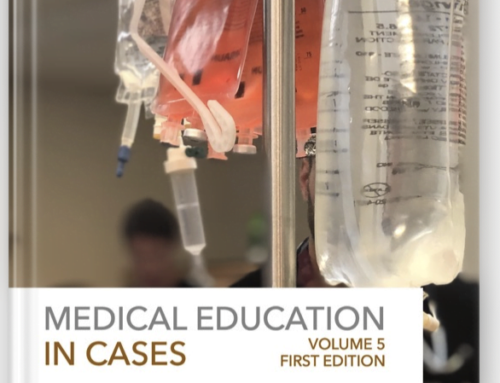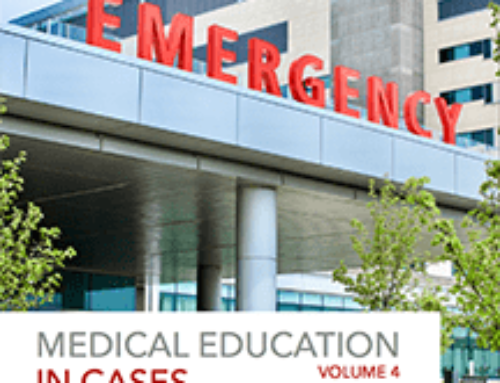 Unprofessionalism. It is notoriously hard to define and dependent upon the eye of the beholder. And yet, as medical educators, we often are asked to intervene when it occurs. Join our discussion on how to handle a case where a patient discloses to you, the supervising physician, that a resident has been less-than-professional. What would you do?
Unprofessionalism. It is notoriously hard to define and dependent upon the eye of the beholder. And yet, as medical educators, we often are asked to intervene when it occurs. Join our discussion on how to handle a case where a patient discloses to you, the supervising physician, that a resident has been less-than-professional. What would you do?
MEdIC Series: The Concept
Inspired by the Harvard Business Review Cases and led by Dr. Teresa Chan (@TChanMD) and Dr. Brent Thoma (@Brent_Thoma), the Medical Education In Cases (MEdIC) series puts difficult medical education cases under a microscope. On the fourth Friday of the month, we pose a challenging hypothetical dilemma, moderate a discussion on potential approaches, and recruit medical education experts to provide “Gold Standard” responses. Cases and responses are be made available for download in pdf format – feel free to use them!
If you’re a medical educator with a pedagogical problem, we want to get you a MEdIC. Send us your most difficult dilemmas (guidelines) and help the rest of us bring our teaching to the next level.
The Case of the Not-so-Humorous Humerus
by Dr. Amy Walsh (@docamyewalsh); Edited by Dr. Teresa Chan
“Hey, do you have time to hear about one? I think we can get her out of here pretty quick,” said Sean, a third year resident. “She seems kind of dramatic. She was trying to get up from her chair last night, her legs got tangled and she fell. She’s complaining of severe arm pain and says that she hasn’t been able to use it since the fall. I think it’s just a deep bruise, but I can’t get a very good exam because she screams every time I touch her arm, so I guess I’ll get some x-rays. Oh, and she has lupus, no other health problems.”
You walk into the room to staff the patient. Mrs. Johnson is obviously uncomfortable, but you understand Sean’s perception that she was dramatic. Armed with the x-ray, you have the benefit of information that your resident did not. Her years of chronic steroids had led to a proximal humerus fracture after relatively mild trauma. You finish up your history and exam, and inform Mrs. Johnson of the plan. “So, we’ll give the Orthopedic surgeon a call. They’ll come see you, and you might need a surgery – but at the very least you might need adjustments to make sure you’re safe at home using your walker. Can I get you some medicine for pain? ” you say, as you are leaving the room after staffing the patient.
“Yes, please. Thank you so much for listening to me. I think Dr. Peters thought I was faking. It seemed like he was almost laughing at me when he was in here. He kept asking me what I was crying about, and trying to get me to get up and try walking. I wouldn’t come here unless I was really in pain, so that made me pretty upset.” Mrs. Johnson said.
“Oh? I’m so sorry to hear that. We’ll make sure everyone takes excellent care of you from here on out, and I’ll discuss this with Dr. Peters.”
You step out of the patient’s room and see Sean putting in orders on another patient. This seems to be a good time to have this discussion with him.
Key Questions
- How do you address the patient’s concerns with Sean?
- What do you expect of Sean to make it right with the patient?
- How do you work through the encounter to make it a learning experience for him, and to help him identify the behaviors that were offensive to the patient?
- How much do you delve into the resident’s personal issues that may be leading to compassion fatigue?
Weekly Wrap Up
As always, we posted the expert responses and a curated commentary derived from the community responses one week after the case was published on April 4, 2014.
Click HERE for a link to the Expert & Community responses, which include words from:
- Dr. Felix Ankel (@FelixAnkel), the vice president and executive director of health professional education, HealthPartners Institute for Education and Research. Felix is a the current Accreditation Council for Graduate Medical Education (ACGME) designated institutional official for Regions Hospital in Saint Paul, MN. He is an associate professor and assistant dean at the University of Minnesota and serves on the board of directors for the Council of Emergency Medicine Residency Directors.
- Dr. Anne Smith (@AnneStir), an emergency physician in George, South Africa. She works to serves a large rural district and loves exploring innovative ways to improve emergency care in areas that are challenged by great distances and resource limitation. Her areas of interest are ultrasound, patient safety and education.
All characters in this case are fictitious. Any resemblance to real persons, living or dead, is purely coincidental. Also, as always, we will generate a curated community commentary based on your participation below and on Twitter. We will try to attribute names, but if you choose to comment anonymously, you will be referred to as your pseudonym in our writing.




